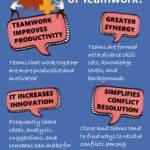
The game of I am more like
I am more like an amazing icebreaker that helps identify the differences between people and develops critical thinking.
To get started, you need to create a set of cards “I am more like,” be sure that you have created the cards to start with a complete set of paired statements, i.e., each person in your group must be able to find a “match.” For example, if you have 40 people, you’ll need 20 sets of matched statements.
Here is a very short list to help you understand what a matching pair looks like. One word on each card:
DOG – CAT
RIVER – LAKE
GIVER – RECEIVER
SOMETHING — ANYTHING
OFFENSE – DEFENSE
SWEET – SALTY
WHY – BECAUSE
TOP – BOTTOM
When ready, randomly distribute one card to each person. As an individual receives their card, they are entitled to look at it, but they should not show it to anyone else yet.
Explain that each person will soon mix and mingle with others in the group in an effort to find their match. Each person is tasked with finding the word or statement on another card that best matches their own as the polar opposite or antithesis.
Alert your group to the fact that it may take some time to view most, if not all, of the cards to identify the best match for one’s card. Once everyone is matched, invite each pair to share their response to the question posed by the conjunction of their two cards.
For example, are you more like a CAT or a DOG? Or are you more of a WHY or BECAUSE person?Encourage people to dive as deep into their sharing as they feel comfortable.
Allow each partnership 1-2 minutes to share, and then prepare to re-distribute the cards. Repeat this matching, sharing, and redistributing process for as long as there is energy and enthusiasm in your group to share.
Moment of Reflection
- What surprised you during the exercise?
- Was it more difficult to consider what you had in common, or not in common with each statement? Why?
- Did you learn something about another person? What specifically?
- What might this exercise teach us about diversity?
- How might this exercise help us to build relationships with others?
The topics of this publication: reflection, critical thinking, interactions, integration, self, diversity, empathy


